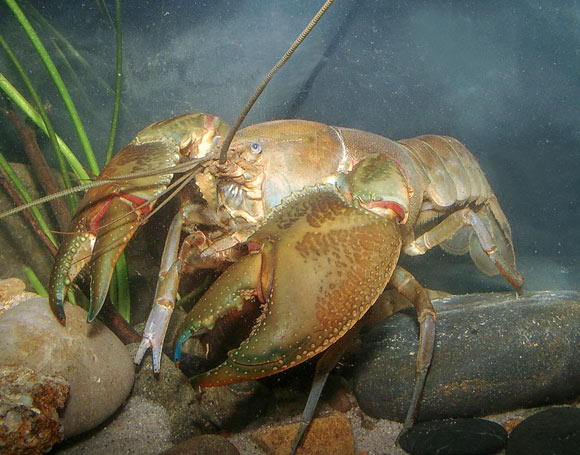The fossil record of freshwater crayfish is surprisingly sparse, comprising mostly trace fossils, some body fossils and rarely gastroliths. Paleontologists from Flinders University, the University of New South Wales, Canterbury Museum and the University of Canterbury have now discovered that a tiny molar on mandibles (jaws) of Gondwanan freshwater crayfish has a hard robust apatite layer that may well facilitate fossilization. They’ve found eight jaw fragments from fossil freshwater crayfish that lived in New Zealand during the Early Miocene epoch.
Prehistoric freshwater crayfish grew up to about 25 cm long, compared to about 8 cm for today’s New Zealand species.
“Crayfish were an important creature in ancient environments,” said Dr. Paul Scofield, senior curator at Canterbury Museum.
“Crayfish bodies don’t fossilize because they are made from the wrong chemical element. But the molar on the jaw does fossilize as it’s made from a different material, much like mammal teeth.”
“This means we can now say categorically where freshwater crayfish lived in prehistoric times. That will tell us much more about prehistoric ecosystems and how they worked.”
Dr. Scofield and his colleagues identified the prehistoric crayfish by sifting through hundreds of thousands of tiny fossil fragments found near St Bathans in Central Otago, using a microscope to identify each piece.
The crayfish were identified from eight jaw fragments, each about 4 mm long.
An exciting observation was that there were three different kinds of mandible, indicating three species lived together.
New Zealand now has only two species and they live in different parts of the country.
The fragments are incredibly rare; one haul of 100 kg of fossil pieces recovered from St Bathans yielded just one fragment.
“We also identified fossilized yabbie buttons for the first time. These are calcium deposits formed in crayfish stomachs,” said Dr. Trevor Worthy, a paleontologist at Flinders…
Read the full article here

